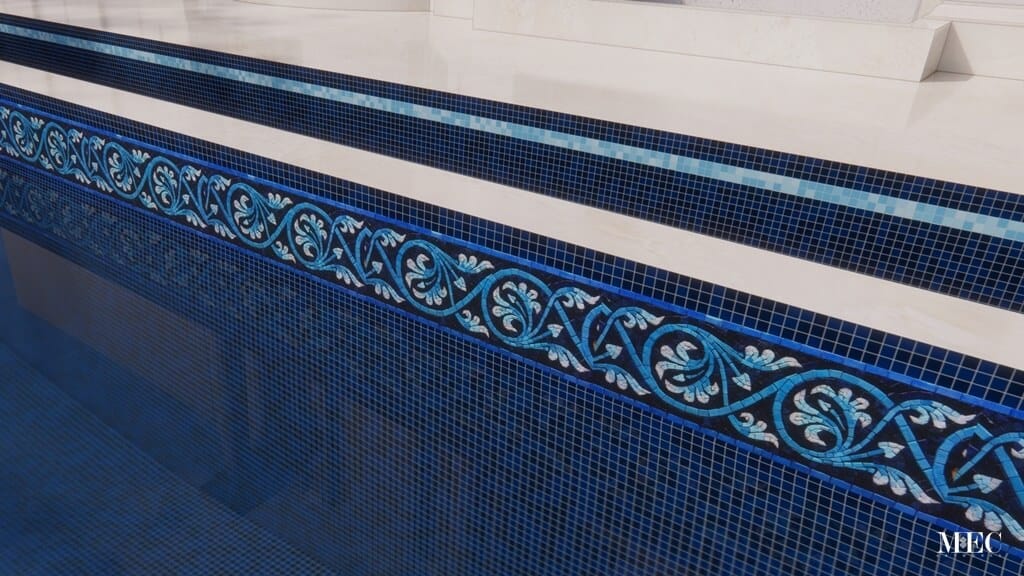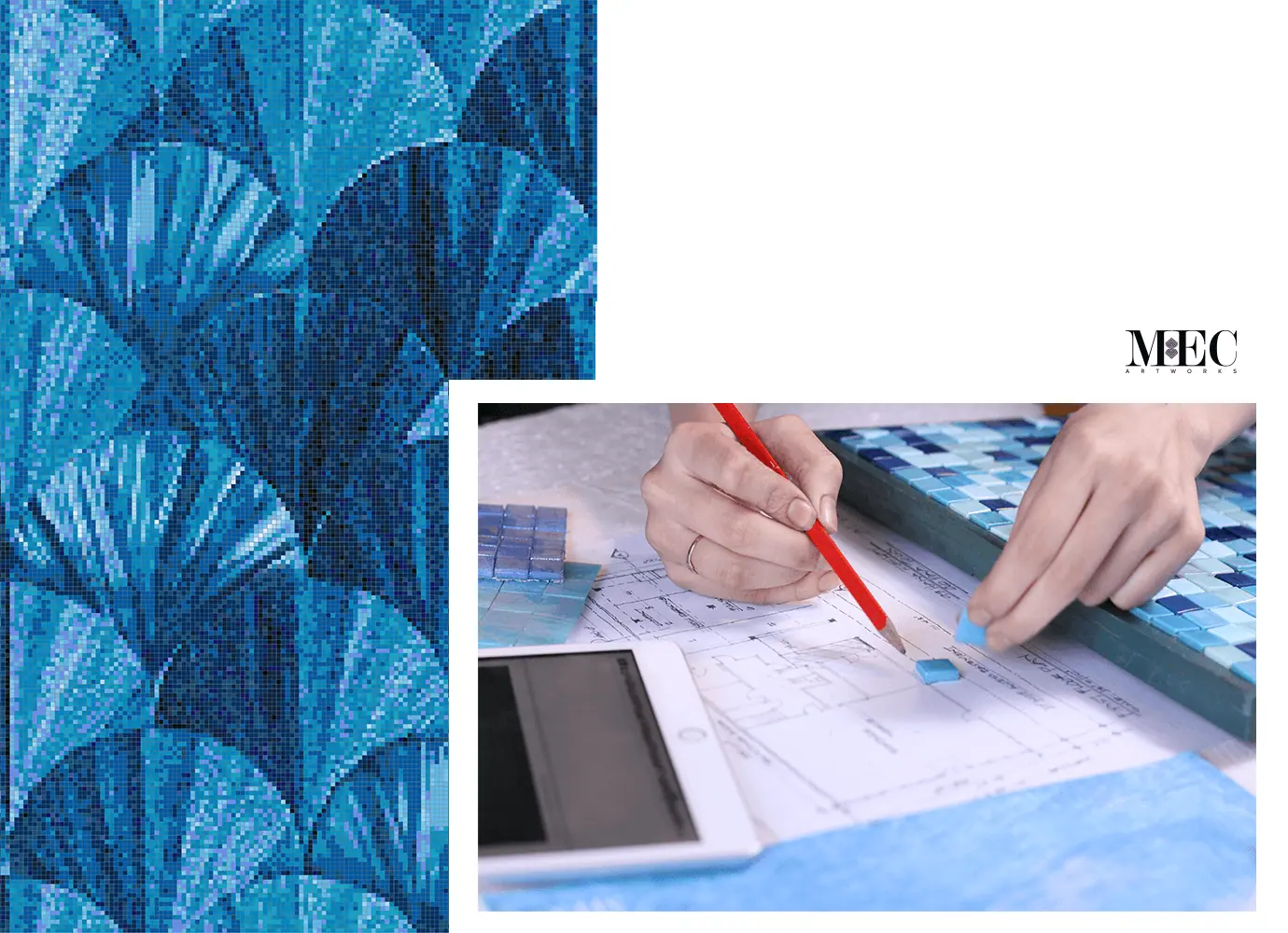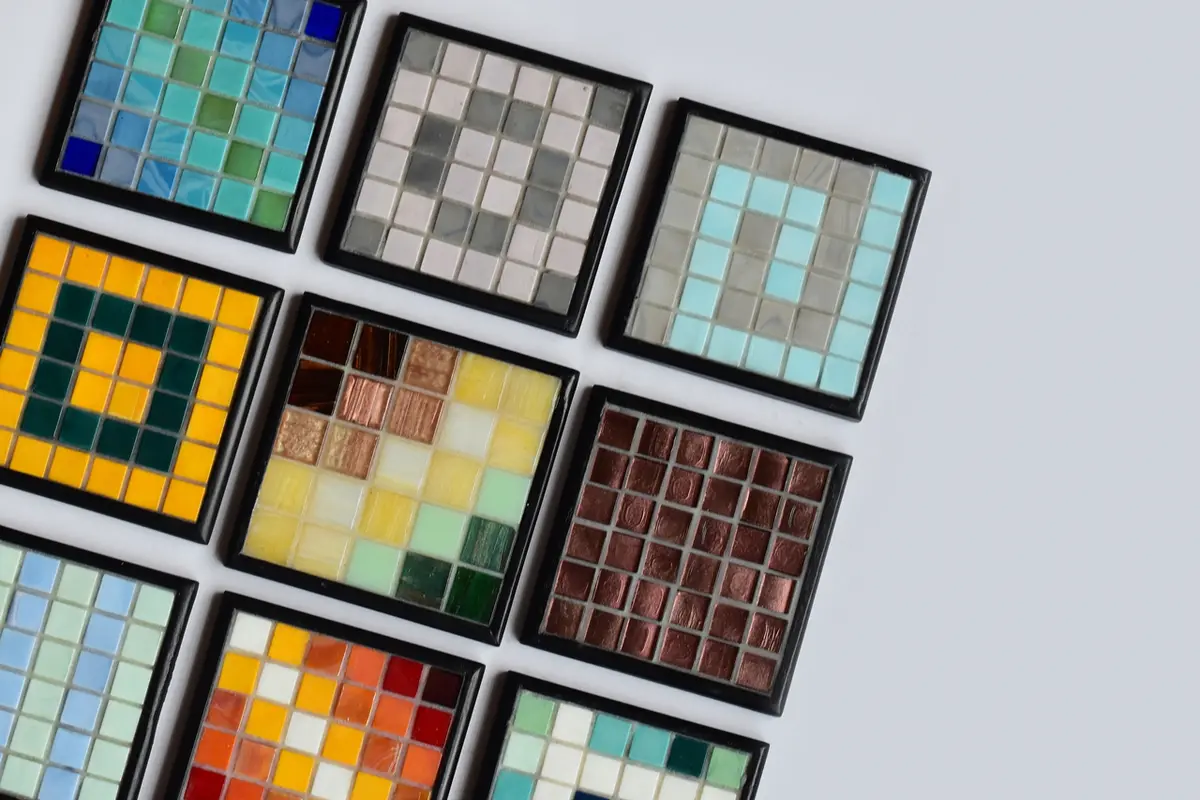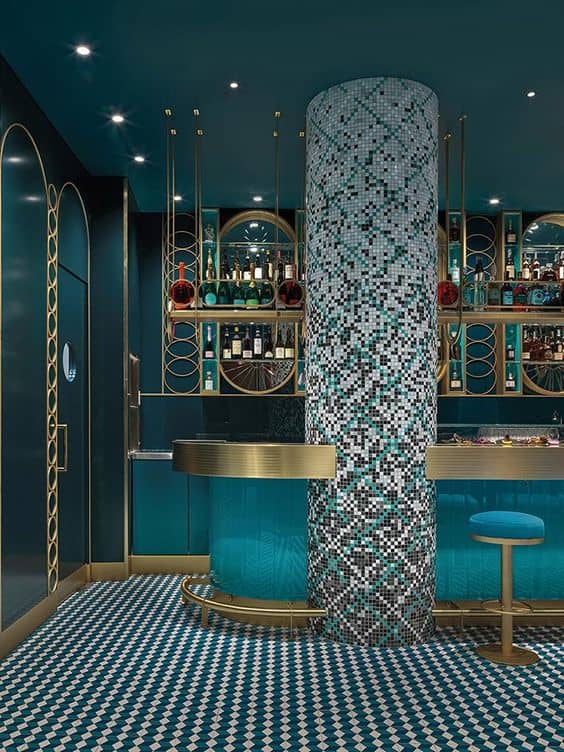Introduction
When it comes to designing your dream pool, every detail matters. One crucial aspect that often gets overlooked is the selection of the waterline tile. The waterline tile not only enhances the visual appeal of your pool but also serves a practical purpose of protecting the pool walls from water damage. In this comprehensive guide, we will explore the key factors to consider when choosing the waterline tile for your pool, ensuring that your pool stands out and captures attention.
What is the Pool Waterline?
The area near the top of the pool, just below the coping (protective material used to cap the pool edge) is considered the pool waterline. As the name indicates, it refers to the part of the pool wall where the water surface reaches. It is recommended to keep the water level of the swimming pool high enough to meet the waterline tile. However, the waterline tile is not the only factor to be considered when determining the optimal water level – for instance, it is recommended that the water meets the middle of the pool skimmer hatch.
Table of Contents
Understanding the Importance of Waterline Tile Selection
The waterline tile plays a vital role in both the aesthetics and functionality of your pool. It acts as a transition between the water and the pool’s interior, creating a visually appealing boundary. Additionally, the tile serves as a protective barrier, preventing water from seeping into the pool walls and causing potential damage. Choosing the right waterline tile will not only elevate the overall design but also contribute to the durability and longevity of your pool.
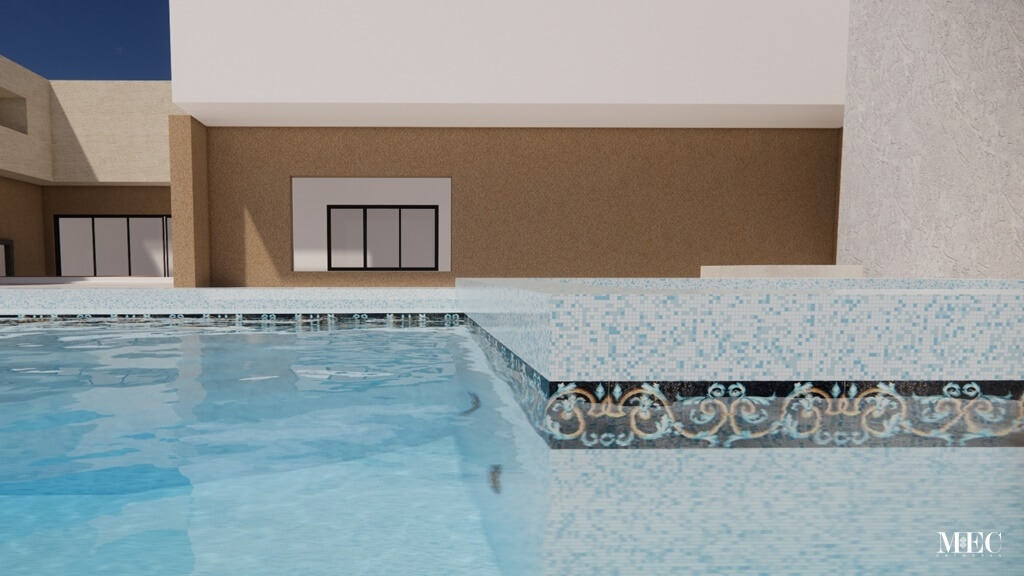
What is a Waterline Pool Tile & Why Do I Need it?
Waterline tile is the tile installed near the top of the pool wall, right beneath the coping. The standard size for a waterline pool tile is 6” (the band can be wider as well), and it runs around the entire perimeter of the pool. When making decisions about a new pool and selecting various materials and options, the waterline tile tends to get overlooked at times. When the time to pick one finally comes, it ends up being a hurried decision. Our suggestion, talk to your contractor/designer and make lists of things you need to decide on. That would ensure ample time for research of available materials, and minimize regret.
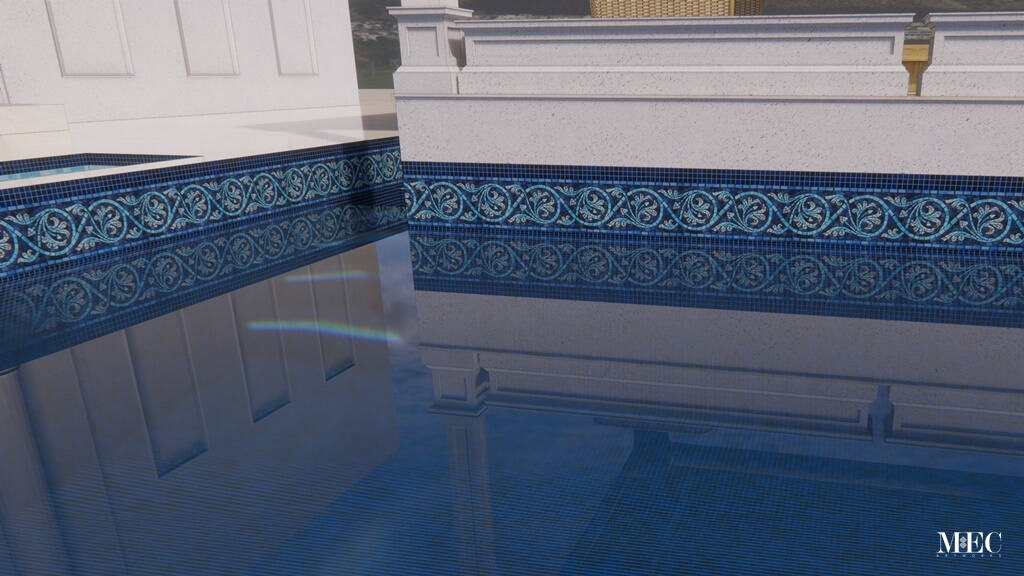
The waterline pool tile helps you protect the pool wall against certain deposits and stains. Think of shower walls and backsplash tiles. Waterline tiles are easy-to-claim and require low maintenance, making it the perfect prevention for an unsightly potential problem.
What is that gunk anyway?
A variety of substances floating on the surface of pool water can cause residues and stains along the waterline. Following are some of the most common ones:
- Organic and Natural Material (dirt, leaves, pollen, fatty substances, debris, pollen)
- Chemicals (pool cleaning chemicals, chlorine, sun screen)
- Hard-water Deposits (minerals found in hard water; also known as calcium scaling)
A couple of months back we shared a pool cleaning guide on our blog, head over to that piece for a more detailed description of the materials that cause deposits and stains around man-made water bodies.
Factors to Consider when Choosing Waterline Tile
1. Material Durability and Resistance
When selecting a waterline tile, it is essential to consider the durability and resistance of the materials. Pool environments can be harsh, with constant exposure to chemicals, UV rays, and varying temperatures. Opt for materials that are specifically designed for pool use and can withstand these conditions. Some popular choices include porcelain, glass, and natural stone tiles.
Since the main purpose of the waterline pool tile is to protect the sides or the pool and maintain hygiene it is essential that they are:
- Non-porous/non-permeable
- Thermal shock resistant
- Frost proof
- Chemical Resistant
- Tested for outdoor and water submerged usage
- Resistant to mildew, mold and bacteria (preferable)
2. Visual Appeal and Design
The waterline tile you choose should harmonize with the overall aesthetic of your pool. Consider the design theme, color palette, and architectural style of your surroundings. Whether you desire a modern, sleek look or a more rustic and natural ambiance, there are a plethora of options available to suit your preferences. Experiment with various tile patterns, colors, and textures to find the perfect fit for your pool.
3. Safety
When selecting waterline tiles, safety is paramount, with a primary concern being potential sharp edges, especially in cut tiles. Glass tiles offer the advantage of being softened or sanded, but this process can be trickier with porcelain. Emphasize a smooth, edge-free installation to minimize any risk of cuts.
Additionally, prioritize a quality, waterproof grout to protect against sharp edges. Proper grouting not only enhances aesthetics but also ensures safety by minimizing exposed edges. Regular inspections for cracks or wear, particularly in high-use areas, will contribute to maintaining a secure and visually appealing pool space.
4. Maintenance and Cleanliness
Waterline pool tiles ideally add durability to the swimming pool and are easy-to-clean. The most popular waterline tile materials that check all the characteristics listed above are ceramic, porcelain and glass. When paired with the right grout they will serve you for decades – maybe even a lifetime. Ceramic and porcelain tiles come in a wide variety of colors, sizes, finishes and textures. You can even mix and match some smaller ceramic tiles to create your own unique blend. While all three of the tile materials mentioned can be suitable for your swimming pool, we shall mainly be focusing on custom glass mosaic waterline tiles today – because that is where MEC’s expertise and passion lies.
5. Budget and Long-Term Investment
Budget considerations are an important aspect of any home improvement project. Determine your budget range for the waterline tile and explore options that align with your financial plan. Remember that the quality and durability of the tile should not be compromised, as investing in a high-quality product will save you money in the long run, reducing the need for frequent repairs or replacements.
Related Article: Considering mosaic for the entire pool body? MEC’s guide on picking the perfect pool mosaic tile might help!
Pattern & Color Options – Choosing the Design Theme for the Waterline Tile
You can choose from hundreds of ready-made tile designs and mosaic blends. There are so many options available in the market. Be sure to go with a brand you trust, you can also ask your tile dealer for technical specifications of the tiles you are considering. You could also get some samples to match the color with your space and aesthetic before finalizing one. Following are some amazing options in terms of color palette and design:
Natural or Neutral Colors & Textures
If you are mainly interested in the functional aspect of the waterline pool tile and do not want it to stand out separately – try a more neutral color. You could also go for something that matches the coping and desk and blends nicely into the swimming pool surrounding. Porcelain tiles that mimic the look of natural stone can be great as well. Another way you can incorporate a subtle waterline pool tile is to choose a blue or aqua glass mosaic waterline that matches the rest of the pool color and features.
Adding a Pop of Color to the Pool
Think of the pool waterline tile as an accent for your swimming pool wall. You can take this opportunity to introduce a dash of color to it! Pick a color or a mix of complimentary colors that goes best with your personal taste and the design style of your backyard. Express yourself with brilliantly colored waterline tiles. Add an element of fun to your backyard oasis.
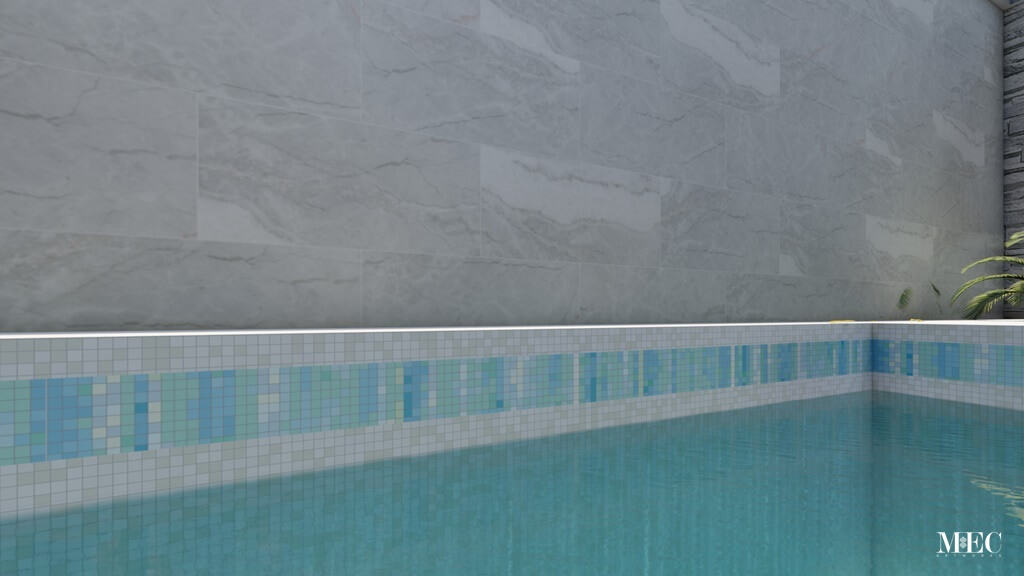
Related Article: A Handy Guide for Picking Pool Mosaic Colors
Impact of Colors in Pool Mosaics
Waterline Tile Materials – Ceramic, Porcelain, Stone or Glass?
In the quest for the perfect waterline tile for your pool, the choice between ceramic, porcelain, stone, and glass involves a nuanced evaluation of various attributes.
Glass tiles, known for their versatility and visually stunning design options. While their customization and professional installation may incur a slightly higher cost, the benefits lie in low water absorption, easy cleaning, and resistance to stains. Before ordering glass mosaic water line pool tile ask the supplier if they are thermal shock resistant, UV resistant, and frost-proof. Occasional maintenance is recommended to preserve their aesthetic appeal. Pair them up with epoxy grout and you have a zero-porosity, hygienic, and highly durable solution for waterline pool tile.
On the durability front, porcelain tiles emerge as high performers, coupled with resistance to water absorption. Though design options may be more limited compared to glass, their moderate cost and low-maintenance nature contribute to their practical appeal. The only potential hurdle comes during installation due to their heavier weight.
For those seeking an enduring and natural aesthetic, stone tiles beckon with their timeless appeal. However, the variable cost and maintenance considerations, including periodic sealing, should be weighed carefully. Notably, unsealed stone may absorb water, potentially housing microbes, bacteria, and mold, necessitating specific cleaning methods based on the chosen stone type.
On the cost-effective end, ceramic tiles bring forth an extensive array of designs, balanced with a moderate level of durability. Despite being susceptible to chipping, their easy installation and maintenance, along with moderate water absorption, make them a popular choice. Cleaning is straightforward, requiring only a mild detergent. However, ceramic tile colors might fade over time from long periods of exposure to sun’s UV rays.
| Tile Material | Durability | Design Options | Installation | Cost | Maintenance | Water Absorption | Cleaning |
|---|---|---|---|---|---|---|---|
| GLASS | Moderate | Versatile and visually stunning | Professional installation required | Varied Moderate-High | Simple & less frequent | Zero | Easy to clean, resistant to stains |
| PORCELAIN | High | Limited | Heavier, challenging installation | Moderately expensive | Simple & less frequent | Very Low | Easy to clean, resistant to stains |
| STONE | Enduring | Limited | Variable, more maintenance | Variable | Requires periodic sealing | Moderate to High | Tricky – Varied based on stone type |
| CERAMIC | Moderate | Limited and may fade | Relatively easy maintenance | Cost-effective | Simple & less frequent | Low | Easy to clean with mild detergent |
While porcelain and ceramic tiles offer durability and a range of shapes and colors, customization finds its pinnacle with glass mosaic. Representing a blank canvas, glass mosaic tiles allow for limitless personalization, enabling the creation of a truly unique and visually striking pool environment. Weigh these factors thoughtfully to choose the waterline tile that seamlessly combines aesthetics and functionality for your pool oasis.
Related Article: How Glass Mosaic Compares with Porcelain and Ceramic?
Best Tile for Pool – How Glass Mosaic Compares with Porcelain and Ceramic?
Not one for mass-produced designs? If you are looking for something unique to make your pool stand out and dazzle everyone – a custom made glass mosaic pool waterline is the perfect solution. Decorative glass mosaic waterline tile can upgrade the style quotient of your space. Light, glass and water make for a spectacular trio. Glass captures and reflects natural light so beautifully. When the light passes through the water and hits the mosaic tiles it creates a visual wonder – like a thousand little gems glistening.
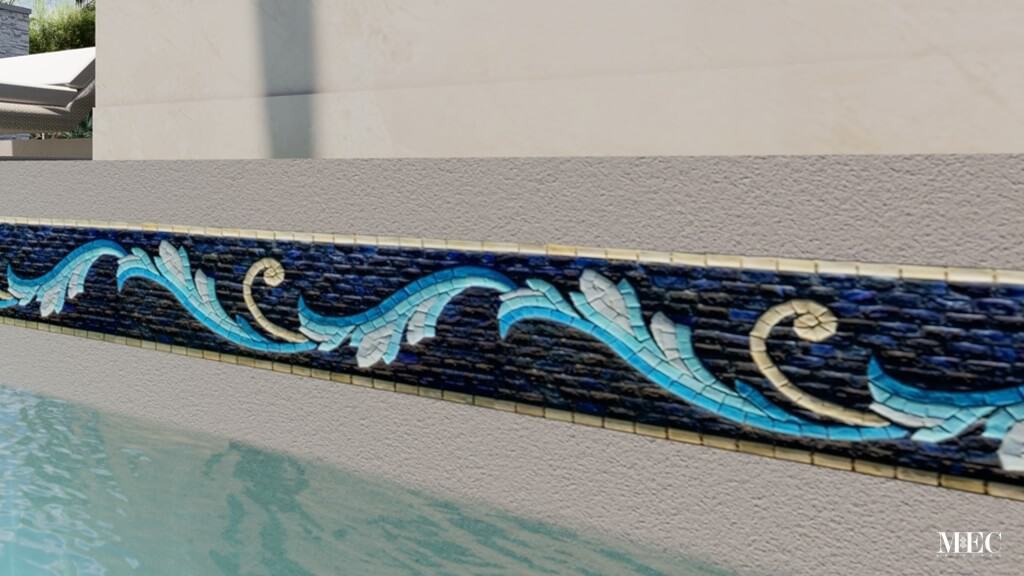
Custom Mosaic Tile for Waterline
Glass mosaic art is very versatile, even in that half foot waterline tile band you can get extremely creative with designs and patterns. Pick your own palette, mix and match different tile textures and sizes, choose between hand-cut designs or computer assisted PIXL grid art. Creating a custom mosaic pool waterline tile can be a fun and rewarding experience. Not sure where to begin? The option paralysis can be real when the choices are virtually endless. Fret not! We are here to help you find that perfect waterline mosaic tile. Our mosaic design experts are at your service. A preliminary one-on-one design consultation session is on the house. Simply share your design preferences, project size and budget and we curate a tailor-made list of options just for you!
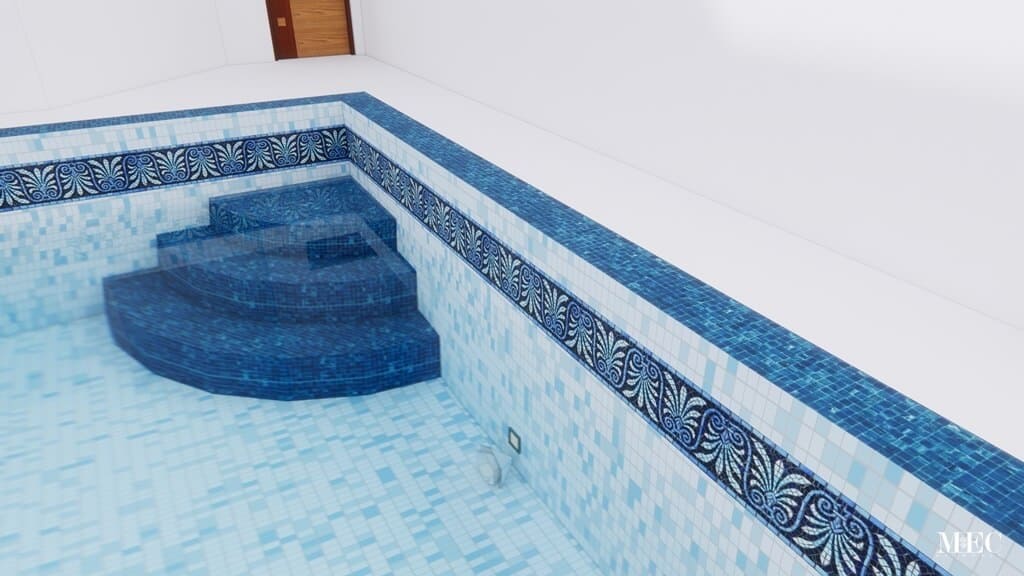
Conclusion
In this exploration of waterline pool tiles, we’ve unveiled the hidden potential within this oft-overlooked detail. Beyond mere practicality (protecting the pool wall from water damage and stains), your pool’s waterline tile emerges as a vital canvas for expressing your style and creativity. You’ve moved through ceramic, porcelain, and stone, reaching the peak of design versatility – glass mosaic tiles. Make your pool journey extraordinary by creating a personalized pool area landscape with mosaic tiles.
With glass mosaic, worries about porosity and absorption, common issues with stone tiles, become a thing of the past. Cleaning becomes a breeze, as there are no tricky spots for microbes and mold to hide. Say goodbye to the constraints of limited color palettes and design choices tied to porcelain and ceramic waterline tiles. Glass mosaic emerges as the optimal choice, striking a perfect balance between design customizability and hygienic options. Make a splash with a pool that not only reflects your style but also ensures a hassle-free and visually stunning experience.
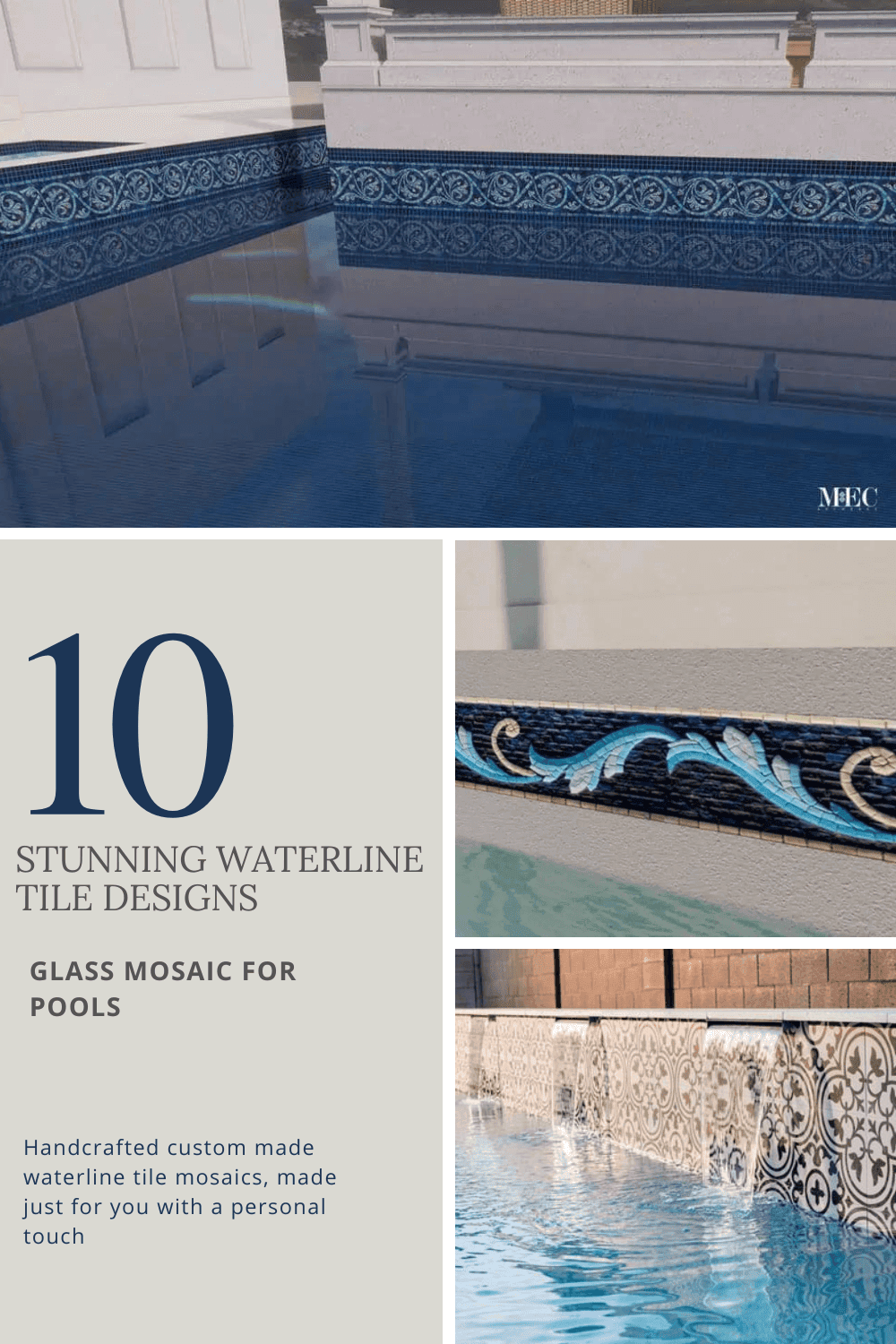
Sources & Further Reading
So many things must be considered when choosing the waterline tile for your pool. This guide will help you know about all these before taking this step.
Things to Consider When Choosing the Waterline Tile for a Pool
Frequently Asked Questions
What is waterline pool tile?
Waterline pool tile refers to the decorative tiles that are installed at the waterline of a pool, creating a visually appealing boundary between the water and the pool’s interior.
Why is waterline pool tile important?
Waterline pool tile serves both aesthetic and practical purposes. It enhances the visual appeal of the pool while protecting the pool walls from potential water damage.
How does waterline pool tile contribute to pool safety?
Waterline pool tile can contribute to pool safety by providing a textured surface or anti-slip coating, reducing the risk of slips and falls as swimmers enter and exit the pool.
Can waterline pool tile be installed on an existing pool?
Yes, waterline pool tile can be installed on an existing pool. However, it is recommended to consult with a professional installer to ensure proper adhesion and compatibility with the pool’s structure.
Are there specific tile options for saltwater pools?
Yes, there are tile options specifically designed for saltwater pools. These tiles are resistant to the corrosive effects of saltwater, ensuring their longevity and maintaining their aesthetic appeal.
Can waterline pool tile be used in both residential and commercial pools?
Yes, waterline pool tile can be used in both residential and commercial pools. Its versatility and aesthetic appeal make it suitable for various pool settings.
Can waterline pool tile be used in hot tubs or spas?
Yes, waterline pool tile can be used in hot tubs or spas. The same principles of durability, aesthetics, and functionality apply when selecting waterline tile for these water features.
Can waterline pool tile withstand freezing temperatures?
Waterline pool tile is designed to withstand various temperature fluctuations, including freezing temperatures. However, extreme temperature changes and improper installation may affect the tile’s durability.
Can I use waterline pool tile for other purposes besides pools?
While waterline pool tile is primarily designed for pool use, its versatility and durability make it suitable for other water features or design projects, such as decorative accent walls or bathroom showers.
